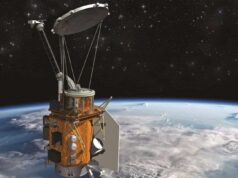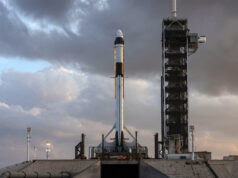
Elon Musk, the visionary entrepreneur behind SpaceX, has long championed the idea of colonizing Mars, painting a picture of a future where humanity becomes a multi-planetary species. However, a prize-winning book, “A City on Mars” by Kelly and Zach Weinersmith, throws a bucket of cold water on this fiery ambition, arguing that Musk’s dream is far more complicated and potentially disastrous than it appears.
The Weinersmiths, a scientist and a cartoonist, delve deep into the logistical, ethical, and scientific challenges of establishing a self-sustaining city on Mars. Their meticulously researched book, lauded for its scientific accuracy and engaging style, challenges the popular narrative surrounding Mars colonization, raising critical questions that Musk and other proponents often gloss over. While the allure of a Martian city is undeniable, the reality, as the book reveals, is fraught with difficulties that could turn the dream into a nightmare.
The Martian Dream: A Closer Look
Musk’s vision for Mars involves establishing a self-sustaining colony of one million people by 2050. This ambitious plan hinges on SpaceX’s Starship, a fully reusable spacecraft designed to transport humans and cargo to Mars. However, the Weinersmiths argue that the technological hurdles are just the tip of the iceberg.
Challenges to Martian Settlement:
- The Harsh Martian Environment: Mars is a hostile planet with a thin atmosphere, extreme temperatures, and high radiation levels. Creating a habitable environment would require massive infrastructure to provide breathable air, water, and protection from radiation.
- Resource Scarcity: Water is scarce, and while there’s evidence of subsurface ice, extracting and utilizing it would be a monumental task. Growing food in Martian soil, which lacks essential nutrients, presents another significant challenge.
- Psychological Impact: The isolation and confinement of living on Mars could take a severe toll on the mental health of colonists. The lack of familiar Earthly comforts and the constant threat to survival could lead to psychological distress and social conflicts.
- Ethical Considerations: Who gets to go to Mars, and who decides? How do we ensure fairness and equity in selecting colonists? What are the ethical implications of potentially altering the Martian environment? These are just some of the ethical dilemmas that need careful consideration.
“A City on Mars”: A Reality Check
“A City on Mars” doesn’t just highlight the challenges; it offers a detailed analysis of potential solutions and their limitations. The book explores various technologies for creating habitable environments, generating food and water, and managing waste on Mars. It also delves into the social and political complexities of establishing a new society on another planet.
The Weinersmiths don’t dismiss the idea of Mars colonization entirely. Instead, they advocate for a cautious and realistic approach, emphasizing the need for thorough research and careful planning. They argue that rushing into Martian settlement without fully understanding the risks could lead to catastrophic consequences.
My Perspective
As someone who has followed Musk’s endeavors with great interest, I find “A City on Mars” to be a refreshing dose of realism. While I admire Musk’s ambition and drive, I believe it’s crucial to acknowledge the complexities and potential pitfalls of his Martian dream. The book serves as a valuable reminder that colonizing another planet is not simply a matter of building rockets and sending people to Mars. It requires a deep understanding of the Martian environment, careful planning, and a willingness to address the ethical and social challenges that will inevitably arise.
Key Takeaways from “A City on Mars”:
- Technological Challenges: Developing the necessary technology for sustainable living on Mars is a monumental task.
- Environmental Hazards: The harsh Martian environment poses significant risks to human health and survival.
- Resource Limitations: Water and essential nutrients are scarce on Mars, making self-sufficiency a major challenge.
- Psychological Impact: The isolation and confinement of Martian life could have profound psychological effects on colonists.
- Ethical Considerations: Issues of fairness, equity, and environmental responsibility need to be addressed before embarking on Martian settlement.
While the dream of settling Mars is captivating, it’s essential to approach it with a healthy dose of realism. “A City on Mars” provides a valuable reality check, highlighting the myriad challenges that stand in the way of Musk’s ambitious vision. The book serves as a call for careful planning, thorough research, and open dialogue about the ethical and practical implications of colonizing another planet.
The future of humanity on Mars remains uncertain. However, one thing is clear: realizing the dream of a Martian city will require more than just technological prowess. It will demand a deep understanding of the challenges, a commitment to ethical principles, and a willingness to confront the unknown.










